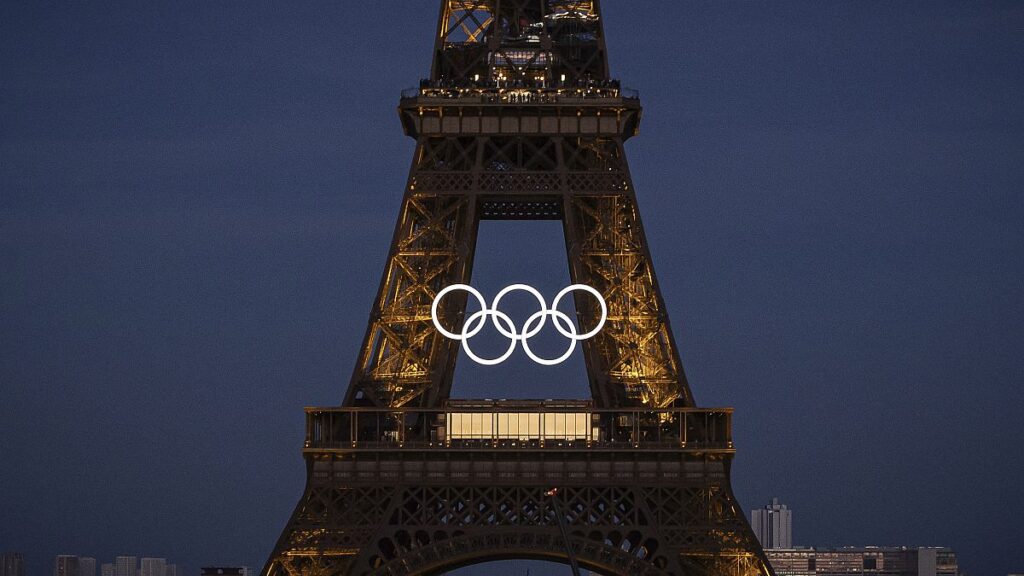The idea of a common European team is resurfacing at the Paris Olympics. Such a team would compete with the United States and China, and would strengthen a common identity. But its realization raises more questions.
It is a sea serpent of European sport. The idea of presenting an EU team to the Olympic Games is regularly mentioned. On the one hand, this “Team Europe” would win the medal ranking ahead of the United States and China, on the other hand it would help to strengthen a European feeling among the Member States and citizens.
But this option seems, at present, unthinkable according to the rules of the International Olympic Committee (IOC). The body that runs the Games refuses to allow any flags other than those of the national Olympic committees to parade.
This was the case”for example in Tokyo in 2021, where the Slovenian representative had asked to parade the Slovenian delegation with a European flag because they were in charge of the presidency of the European Union at that time, it had been refused by the IOC” explains Carole Gomez, graduate assistant in sociology at the University of Lausanne.
Athletes could, however, display the blue flag with the twelve stars. The Italian fencer, Elisa Di Francisca, thus brandished a European flag in Rio in 2016 when she was awarded her silver medal. The gesture was welcomed at the time by the head of European diplomacy, Federica Mogherini, and the President of the European Parliament, Martin Schulz.
The President of the European Commission in 2004, Romano Prodi, had already asked athletes from member states to fly the EU banner, but to no avail.
Sport and identity
Sport plays an important role in the development of national identities because it features a state, a flag, an anthem and generates enthusiasm. It therefore contributes to the construction of a collective memory.
Gold, “The official history between the European Union and sport is relatively recent.“, explains Carole Gomez. “Since 2009, and in particular the Treaty of Lisbon, there has been a formalisation of this interest in sport which has become a focus of work“.
This interest can be materialised by the joint organisation of competitions between different actors or the development of sport within the framework of Erasmus +. In addition, the EU has been developing a sports diplomacy for around ten years.
But beyond this initiative, founding a joint team is not in the interest of the 27, believes Carole Gomez.
“Having a European team would require selections and disqualifications within the whole of the European top athletes. And so for example, instead of having a podium with a Greek, a Spaniard and a Slovenian, we would actually only have one representative of the European Union.“, she specifies. Even if she recognizes that on paper the project “would be very beautiful from a symbolic point of view“.
She prefers the idea of doing a calculation total EU medals and to discuss other ways of consolidating this common European identity.
“As part of these Olympic and Paralympic Games in Paris, a request had been made by Emmanuel Macron to display the French flag and the European flag side by side as the host country.“, specifies Carole Gomez. A request accepted by the IOC.”Within the Olympic Village or on the competition sites, there can be this double flag that appears. And that seems to me to be something interesting also in the length” she continues.
In fact, Italy with Milan Cortina and France “under conditions” with the French Alps will organize the Winter Olympic Games in 2026 and 2030. These events will be an opportunity to reflect on this idea of a common European identity in sport.

